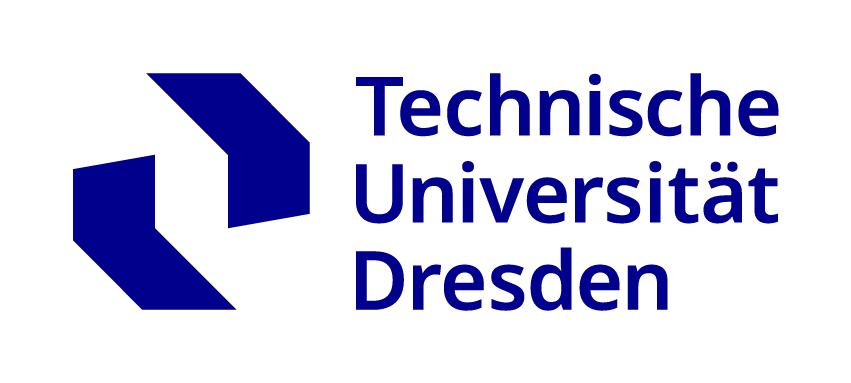Professur für Verkehrsströmungslehre (VSTL)
übergeordnete Einrichtungen:Technische Universität Dresden (TUD)

Kontakt
| Web: | https://tu-dresden.de/bu/verkehr/ila/vkstrl | |
| E-Mail: | ||
| Telefon: | +49 (0) 351 463-36523 | |
| Fax: | +49 (0) 351 463-36524 | |
| Postanschrift: | Technische Universität Dresden (TUD), Professur für Verkehrsströmungslehre (VSTL), 01062 Dresden, Germany | |
| Besucheradresse: | Technische Universität Dresden (TUD), Professur für Verkehrsströmungslehre (VSTL), Hettnerstraße 1 (Gerhart-Potthoff-Bau, Room 104), 01069 Dresden, Germany | |
| Partner: | Technische Universität Dresden | |
Beschreibung
Unser Lehr-und Forschungsprofil zielt auf systemische Probleme aus dem Transportwesen ab, wobei wir uns auch gerne verwandten Themenstellungen widmen. Dabei werden Betriebsabläufe in Systemmodellen mit einem alle Verkehrsträger übergreifenden Analyse- und Lösungsansatzes abgebildet. Die Dresdner Schule bildet dabei das theoretische Fundament dieses Lehrstuhls, das jedoch durch moderne Impulse deutliche methodische Erweiterungen erfahren hat.
Schwerpunkt der Forschung an der Professur für Verkehrsströmungslehre ist das Anwenden und Weiterentwickeln von Methoden/Modellen der Statistik, der Prognose, des Operation Research u. a. m. zur Analyse von logistischen Prozessen und zum Erstellen von Software für die Planung von Verkehrs-/Transportprozessen.
Im Zentrum der Forschung stehen Betriebsabläufe vorwiegend aus dem Verkehrswesen und der Logistik, jedoch widmen wir uns auch artverwandten Fragestellungen. Ziel ist die Optimierung des Leistungsverhaltens von Verkehrssystemen unter Berücksichtigung beschränkter Ressourcen. Im Rahmen unserer Forschung erfolgt die stochastische und deskriptive Analyse von betriebstechnologischen Prozessen und deren Abbildung auf mathematische Systemmodelle. Anhand dieser Systemmodelle werden systemische, verkehrstechnologische wie auch logistische Fragestellungen untersucht und durch Optimierungsverfahren bzw. simulative Ansätze behandelt.
Die Ergebnisse können einerseits in ein Unterstützungstool für operative Einheiten im Verkehrswesen münden, andererseits können die Ergebnisse zur Unterstützung von Managemententscheidungen herangezogen werden. Typische Fragestellungen der Vergangenheit sind:
- Taktfahrlagenplanung
- Erzeugung von Gütersystemtrassen
- Generierung von Nahverkehrsnetzen mit hoher Kundenfreundlichkeit
- Slotallokation im Streckenflugverkehr Europas
- Verkehrsflusssteuerung zur kombinierten An- und Abflugsteuerung an Verkehrsflughäfen
***********English**********
Historically Traffic Flow Science is engaged in the basic theories of traffic flows in networks, the analysis of transportation and traffic systems as well as the mathematical modeling of transporation processes in order to deduce conclusions on the configuration, management and safety of transportation and traffic systems as well as the capability and process performance of system elements in the context of the overall system. In addition stochastic methods and queuing theory are applied. Based on this analytical consideration of transportation and traffic processes the requirements for modeling such systems grow considerably. The enhanced modeling needs aim at higher model accuracy in transportational terms. The coupling of analytic modeling with stochastic simulation and heuristic as well as exact search methods in complex optimisation problems describes the modern Traffic Flow Science of the chair.
Operation technologies and techniques are object in our research with focus on processes in transportation and logistics. Related topics and problems are welcome as well. Our research is targeted on the optimization of system performance in transportation and traffic in due consideration of limited resources. Within our research stochastic and descriptive analysis of processes of operation technologies and their reproduction into mathematic system models are carried out. By these mathematic models systemic, technologic as well as logistic questions are investigated and examined by dint of optimization methods and simulative approaches respectively.
Results flow on the one hand into supporting software tools for operating entities in transportation and logistics. On the other hand deliverables are to be consulted to facilitate strategic management decisions. Typic questions in history were:
- Scheduling of Periodic Timetables
- Generation of Location Line Systems for Freight Transportation
- Generation of Networks for Public Metropolitan Transportation offering high Customer Service
- Slot Allocation as Part of the European Air Traffic Flow Management
- Combined inbound and outbound Air Traffic Flow Management at Hub-Airports
- etc
Zugehörigkeit
übergeordnete Einrichtungen
| Name | Typ | Aktionen |
|---|---|---|
| Institut für Luftfahrt und Logistik (IFL) | Institut |
Letztes Update
Letztes Update am: 12.06.2017 13:13 CEST

